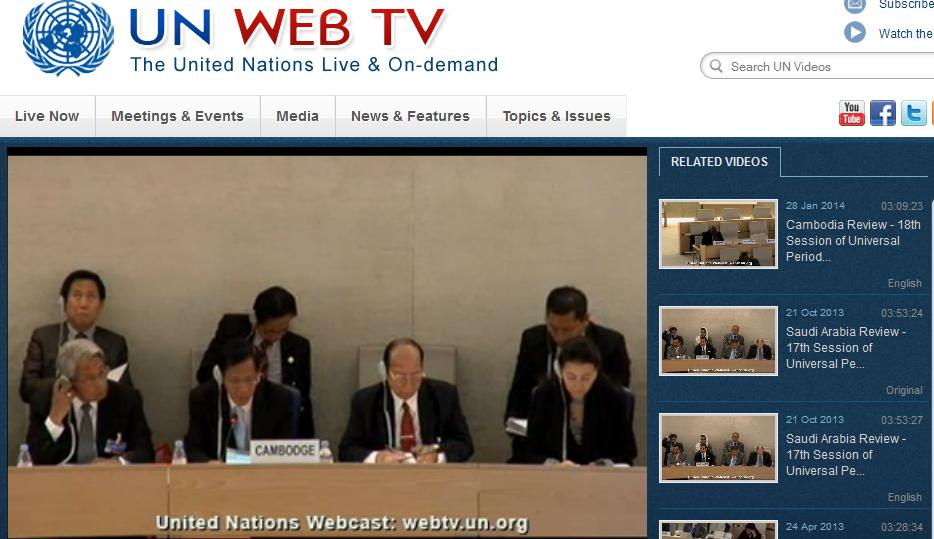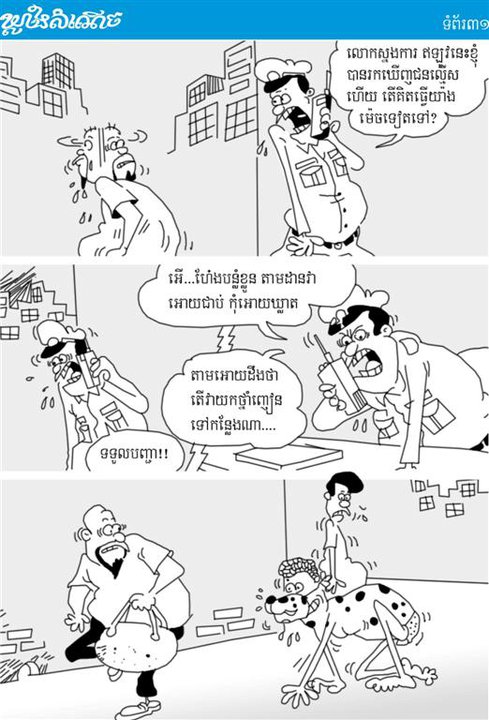Leadership
now browsing by category
What is Politics? – Classic Political Jokes
What Is Politics?
A little boy goes to his dad and asks, “What is politics?”
Source: Unknown
Dad says, “Well son, let me try to explain it this way: I’m the
breadwinner of the family, so let’s call me capitalism. Your Mom, she’s the administrator of the money, so we’ll call her the Government. We’re here to take care of your needs, so we’ll call you the people. The nanny, we’ll consider her the Working Class. And your baby brother, we’ll call him the Future. Now, think about that and see if that makes sense,”
Later that night, he hears his baby brother crying, so he gets up to check on him. He finds that the baby has severely soiled his diaper. So the little boy goes to his parents’ room and finds his mother sound asleep. Not wanting to wake her, he goes to the nanny’s room. Finding the door locked, he peeks in the keyhole and sees his father in bed with the nanny. He gives up and goes back to bed. The next morning, the little boy says to his father, “Dad, I think I understand the concept of politics now.”So the little boy goes off to bed thinking about what dad had said.
The father says, “Good son, tell me in your own words what you think politics is all about.”
The little boy replies, “Well, while Capitalism is screwing the Working Class, the Government is sound asleep, the People are being ignored and the Future is in deep poo.”
បកប្រែក្រៅផ្លូវការ….ដោយសុភ័ណ
កេ្មងប្រុសតូចម្នាក់ដើរទៅកាន់ឳពុកខ្លួន ហើយសួរថា ពុកតើអ្វីគឺនយោបាយ?
ឳពុកឆ្លើយថា៖ ល្អកូនចាំពុកព្យាយាមឆ្លើយយ៉ាងសាមញ្ញថា បើឳពុកជាមេគ្រួសារ កូនអាចហៅពុកថាជាជនអ្នកអភិជន។ ម៉ែរបស់កូនជាអ្នកគ្រប់គ្រងប្រាក់កាស ដូច្នេះយើងហៅថា ជារដ្ឋាភិបាល។ យើងទាំងអស់គ្នានៅទីនេះ ជាអ្នកចិញ្ចឹមបីបាច់កូន ដូច្នេះយើងហៅកូនថាជាប្រជាជន។ ស្រ្តីអ្នកធ្វើការផ្ទះជួយមើលការខុសត្រូវកូន គឺជាវណ្ណៈកម្មករ។ ហើយប្អូនប្រុសរបស់កូន យើងហៅថា យុវជនជំនាន់ក្រោយឬទំពាំងស្នងប្ញស្សី។ ឥឡូវ កូនល្បងគិតត្រង់ចំណុចនេះ ហើយរកមើលថាវាអាចនឹងមាន អត្ថន័យគ្រប់គ្រាន់។
ក្មេងប្រុសតូចដើរចេញទៅដេកព្រមជាមួយនឹងការត្រិះរិះចំពោះអ្វីដែលឳពុកបានប្រាប់
មួយសន្ទុះក្រោយមក នៅយប់នោះ គេលឺសំឡេងប្អូនប្រុសកំពុងយំ គេបានក្រោកឡើងទៅមើល។ គេប្រទះឃើញប្អូនប្រុស ប្រឡាក់ប្រឡូសកន្តូបពេញពាស។ ហើយក្មេងប្រុសតូចនេះ ដើរសំដៅទៅកាន់បន្ទប់ដេកឳពុក-ម្តាយ ឃើញម្តាយកំពុងដេក លក់ស្លឹង។ មិនចង់ដាស់ម្តាយអោយភ្ញាក់ ហើយដើរសំដៅទៅបន្ទប់របស់ស្រ្តីអ្នកមើលក្មេង។ ដោយប្រទៈឃើញទ្វារចាក់សោរជាប់ គេលួចមើលតាមប្រហោងសោរ ក៏ឃើញឳពុកដេកនៅលើគ្រែជាមួយស្រ្តីអ្នកមើលក្មេង។ គេក៏លែងឈប់ខ្វល់ខ្វាយ ហើយ ដើរត្រឡប់ទៅដេកវិញ។ ព្រឹកឡើងថៃ្ងបន្ទាប់ ក្មេងប្រុសតូចនិយាយទៅកាន់ឳពុកថា ពុកខ្ញុំយល់នូវអត្ថន័យពិតប្រាកដរបស់ នយោបាយហើយឥឡូវនេះ។
ឳពុកឆ្លើយ ល្អហើយកូន ប្រាប់ពុកដោយផ្ទាល់មាត់របស់កូនមើល៍ នូវអ្វីដែលកូនគិតថាអ្វីគឺនយោបាយនោះ?
ក្មេងប្រុសតូចឆ្លើយថា ត្រូវហើយពុក នៅពេលដែលជនអ្នកអភិជនកំពុងរុំរិតពួកវណ្ណៈកម្មករ រដ្ឋាភិបាលដេកស្លឹងមិនដឹងខ្លួន ប្រជាជនត្រូវបានគេព្រងើយកន្តើយ និងទំពាំងស្នងប្ញស្សីស្ថិតនៅក្នុងគំនរលាមកស្អុយគគ្រក់។
Posted in Culture, Education, Leadership, Politics, Social | Comments Off on What is Politics? – Classic Political Jokes
Tags: Political Jokes
The Illustrated Guide To A Ph.D.
The Illustrated Guide To A Ph.D.
Every fall, I explain to a fresh batch of Ph.D. students what a Ph.D. is.
It’s hard to describe it in words.
So, I use pictures.
Read below for the illustrated guide to a Ph.D.
Imagine a circle that contains all of human knowledge:

By the time you finish elementary school, you know a little:

By the time you finish high school, you know a bit more:

With a bachelor’s degree, you gain a specialty:

A master’s degree deepens that specialty:

Reading research papers takes you to the edge of human knowledge:
Read More …
CAMBODIA: Plus ça change…by Dr.Peang-met
CAMBODIA: Plus ça change…
FOR PUBLICATION
AHRC-ETC-004-2014
January 30, 2014
An article by Dr. Gaffar Peang-Meth published by the Asian Human Rights Commission
CAMBODIA: Plus ça change…
Plato (429—347 B.C.): “One of the penalties for refusing to participate in politics is that you end up being governed by your inferiors.”
Nikita Krushchev (1894—1971): “Politicians are the same all over. They promise to build bridge even where there is no river.”
James Q. Wilson (1931—2012), former President of American Political Science Association: “Without Liberty, Law loses its nature and its name, and becomes oppression. Without Law, Liberty also loses its nature and its name, and becomes licentiousness.”
Jean-Baptiste Alphonse Karr (1808—1890): “Plus ça change, plus c’est la même chose” – The more things change, the more they stay the same.
More than six months after the July 28 national election, the divide between the ruling Cambodian People’s Party and the opposition Cambodian National Rescue Party grows wider still.
I remain scepticalabout “negotiations” between these two uncompromising parties,each demanding all-or-nothing as supporters cheer, and the people aresqueezed in between.
As national institutions that should be apolitical are instead openly committed to the current regime, negotiations between government representatives and the opposition are unlikely to produce meaningful or long-lasting results. In the face of ongoing labor unrest, particularly in the garment industry, Defense Minister Tea Banh has twice in recent days affirmed that the Royal Cambodian Armed Forces will protect “election results and support” Hun Sen. On January 23rd, National Military Police Commander Sao Sokha declared that the National Military Police will protect Premier Hun Sen’s government. Hun Sen already has a separate, unique contingent of body guards who presumably remain loyal to him. The judiciary is already Hun Sen’s tool.
Still, it’s illogical to brand every member of the RCAF, the Police, and the Courtsas endorsingHun Sen’s oppressive acts. Cambodian democrats should work on winning over the silent many and neutralize the extremists on both sides who demonize others: Not all supporters of the CPParedevils, nor are all who support the CNRP saints. We err as citizens when we assume the motives of one group are entirely benevolent and those of another entirely malevolent. American civil rights leader Martin Luther King, Jr., a student of Mahatma Gandhi, once said, “There is some good in the worst of us and some evil in the best of us.”
The CNRP says it will boycott the National Assembly until the CPP agrees to a mid-term election (in 2016 or earlier); that there will be no talks with the CPP until the on public demonstrations is lifted. Kem Sokha, an outspoken CNRP leader, vowed, “We will continue to hold demonstrations” until the government agrees to a fresh election.
Posted in Education, Leadership, Politics, Social | Comments Off on CAMBODIA: Plus ça change…by Dr.Peang-met
Tags: Dr.Peangmet
Will re-election in Cambodia is possible?
 Watching this “18th Session of Universal Periodic Review” on Cambodia this 28 January 2014, Cambodian representatives failed to crystallize the questions of election irregularities, arm-force violence, and the demand for the release of those 23 detainees. Notably, the representatives kept repeating the message at the same content such as in the introduction, in the middle stage of clarification and in the last conclusion. Member countries of Paris Peace Agreement highly recommended Cambodian government to tackle with election irregularities, human rights violation on assembly and peaceful demonstration, and arm-force violence.
Watching this “18th Session of Universal Periodic Review” on Cambodia this 28 January 2014, Cambodian representatives failed to crystallize the questions of election irregularities, arm-force violence, and the demand for the release of those 23 detainees. Notably, the representatives kept repeating the message at the same content such as in the introduction, in the middle stage of clarification and in the last conclusion. Member countries of Paris Peace Agreement highly recommended Cambodian government to tackle with election irregularities, human rights violation on assembly and peaceful demonstration, and arm-force violence.
Cambodia Review – 18th Session of Universal Periodic Review
UPR Extranet (information updates etc. see UPR homepage for Login Credentials CLICK HERE)LIST OF SPEAKERS
H.E. Mr. Mak Sambath, Vice Chair of the National Human Rights Committee – Head of Delegation (Introduction)
Slovenia, Mr. Matjaz Kovacic
Spain, Mr. Vicente Cacho
Sri Lanka, Mr. Ravinatha Aryasinha
State of Palestine, Ms. Nada Tarbush
Sweden, Ms. Irina Schoulgin Nyoni
Switzerland, Mr. Alexandre Fasel
Indonesia, Mr.. Triyono Wibowo
Timor-Leste, Mr. Marcino Da Silva
Tunisia, Mr. Slim Ghariani
Turkmenistan, Mr. Esen Aydogdyev
United Kingdom, Mr. Bob Last
United States of America, Mr. David Sullivane
Uruguay, Mr. Patricio Silva
Uzbekistan, Mr. Javohir Nurmetov
Venezuela (Bolivarian Republic of), Mr. Edgardo Toro
Viet Nam, Mr. Thanh Nguyen
Algeria, Mr. Antar Hassani
Angola, Mr. Andre Kitoko
Posted in Education, Leadership, Politics, Social | Comments Off on Will re-election in Cambodia is possible?
Tags: Geneva periodic review












